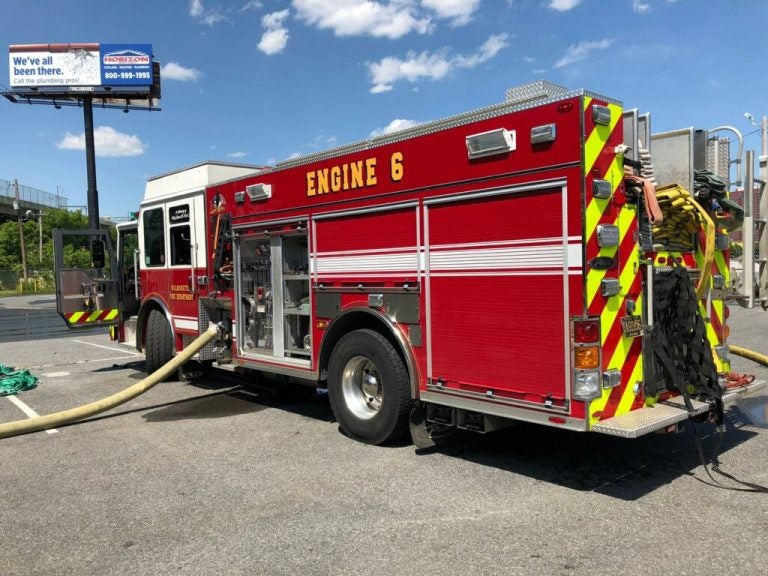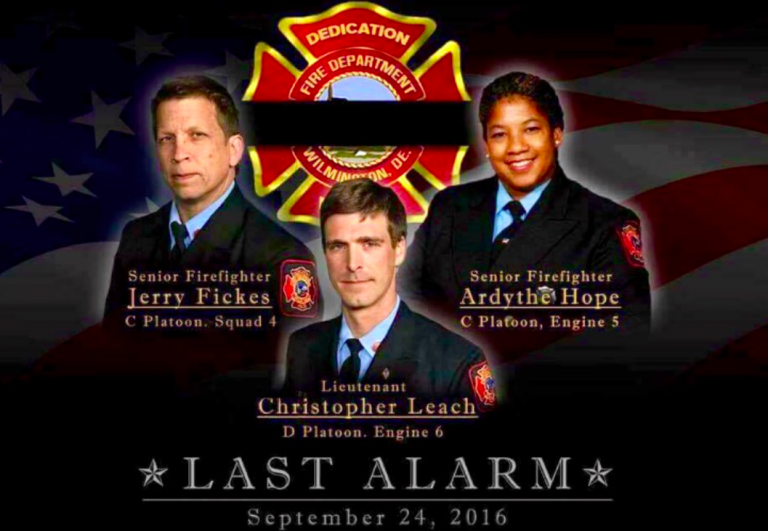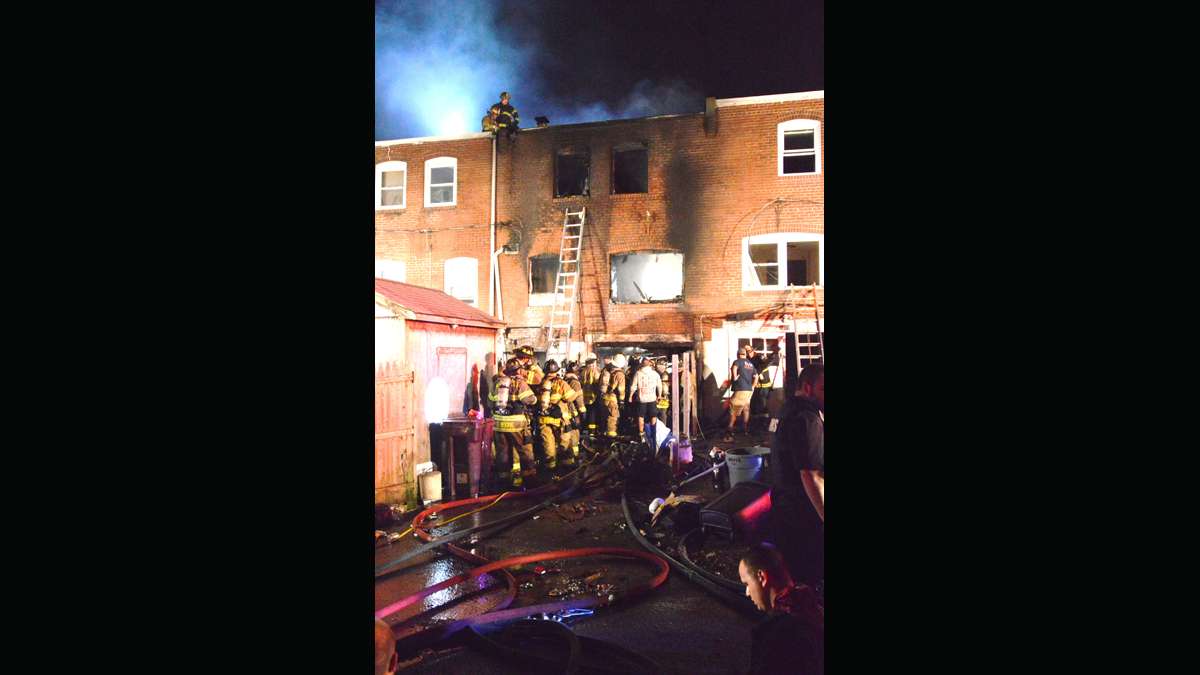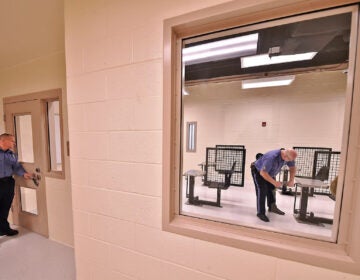Judge dismisses federal lawsuit in blaze that killed 3 Wilmington firefighters
The lawsuit blames the “rolling bypass’’ policy and staffing levels. A judge ruled that the firefighters’ constitutional rights were not violated, but plaintiffs will appeal.

Engine 6, which was stationed closest to the fire where three firefighters died in 2016, was out of service that night as part of the city's "rolling bypass" policy. (Courtesy of Thomas S. Neuberger)
A federal judge has dismissed a lawsuit filed against the city of Wilmington and top former officials in the aftermath of a 2016 rowhouse fire that killed three firefighters and seriously injured three others.
The ruling, handed down late Friday by Delaware U.S. District Judge Maryellen Noreika, said that “notwithstanding the tragedy undoubtedly suffered, none of plaintiffs’ three counts are sufficient as currently alleged.”
Wilmington deputy chief of staff John Rago said city officials “are pleased with the court’s decision,” but plaintiffs’ attorney Thomas S. Neuberger vowed to appeal.
The fire, which was ruled an arson, broke out in the basement of a Canby Park rowhouse around 3 a.m. on Sept. 24, 2016. Firefighters rushed into the home because they feared one or more people might be trapped inside.
A federal incident report released in 2018, however, found that a commander had learned a minute before firefighters entered the burning home that all occupants were out. A couple of minutes after the firefighters entered, the second and third floors collapsed.
Killed were Christopher Leach, Jerry Fickes and Ardythe Hope. Brad Speakman, Terrance Tate and John Cawthray were injured.

The lawsuit had charged that the city of Wilmington’s policies to mothball fire engines, known as a “rolling bypass” and to not fill authorized positions were directly to blame for the deaths and injuries.
Neuberger had declared upon filing the case in August 2018 that “blood is on the hands” of former mayors James M. Baker and Dennis Williams and former fire Chiefs Willie Patrick and Anthony Goode.
Current Mayor Mike Purzycki and chief Michael Donohue were not named in the lawsuit. The city still uses the rolling bypasses, in which a fire engine truck that carries water is put out of service on a regular basis.
The three-count lawsuit claimed the city and its leaders violated the firefighters’ constitutional rights on three counts, subjecting them to a “state-created danger” manifested by a “maintenance of policies, practices and customer’ that ‘shocks the conscience.’”
The lawsuit claims they violated the 14th Amendment that says the government cannot “deprive any persons of life, liberty of property, without due process of law.”
Noreika rejected this argument in her dismissal memorandum, pointing out that danger is inherent in jobs such as firefighter, police officer and prison guard.
Quoting from another federal court ruling, Noreika wrote that such employees “are exposed to state-created dangers every day – a police officer assigned to arrest an armed and violent suspect or a firefighter instructed to enter a burning building will always face an increased exposure to danger than he or she had before that assignment, that risk will always be known to the supervisors making the assignment, and the decision to issue the directive will always be made in contemplation [and arguably disregard] of that risk.
“Yet it simply cannot be that such decision-making by supervisors, even if tragically flawed, bears constitutional implications; to hold otherwise would dramatically expand the scope of judicial scrutiny of first-responder operations and would effectively convert the Constitution into the guarantee of workplace safety.”
Rago said officials would not be commenting further.
Neuberger said his legal team “will appeal for our many orphans and widows.”
The Third U.S. Circuit Court of Appeals “in Philly will give us a fair hearing and correct the many errors made by the trial judge,’’ the lawyer said. “I am sure their judicial consciences will be shocked also by the ‘I don’t care’ attitude of the city regarding firefighter safety.”

Neuberger added that “while the law often moves too slowly, we will continue our fight for justice, even if our day in court before a jury has been momentarily delayed. A jury, one day, will set this right. Unfortunately, the city may go bankrupt paying for its arrogance.”
The federal report didn’t cite the rolling bypasses but did essentially say that Leach, Fickes and Hope were doomed that chaotic and fateful night. Factors that contributed to their deaths included poor communications, improper training, no incident-action plan and poor tactics for fighting a basement fire, the report said.
Beatriz Fana-Ruiz, who lived in the home with her family and intentionally started the fire because she was unhappy with her living situation and her life. She was sentenced in December to 30 years in prison.
WHYY is your source for fact-based, in-depth journalism and information. As a nonprofit organization, we rely on financial support from readers like you. Please give today.





